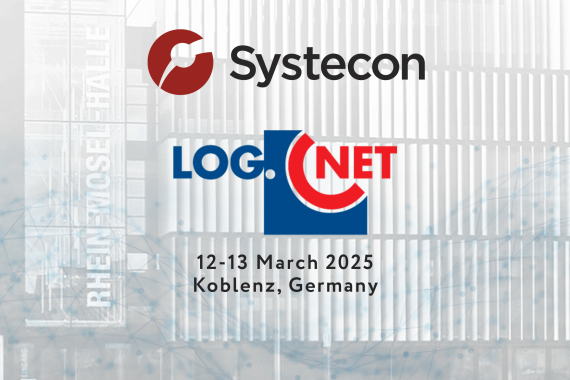

How Opus Suite Can Ensure Supply Chain Resiliency
When you need to solve for just in time versus just in case. How resilient is your supply chain?
Supply chain resiliency refers to the ability of a company's supply chain to withstand and recover from unexpected disruptions or challenges, such as natural disasters, geopolitical events, supplier bankruptcy, or supply chain breakdowns. Supply chain optimization can adapt quickly to changing circumstances, recover quickly from disruptions, and continue to provide products or services to customers without interruption.
Supply chain resiliency involves identifying and assessing potential risks to the supply chain, developing strategies and contingency plans to mitigate those risks, and implementing those plans to ensure the continuity of operations in the event of a disruption. It requires effective communication and collaboration with suppliers, customers, and other stakeholders, as well as the use of advanced technologies and data analytics tools to monitor Supply chain optimization and identify areas for improvement.
Ensuring supply chain resiliency is becoming increasingly important in today's global and interconnected business environment, where disruptions in one part of the world can quickly impact supply chains and operations in other regions. Companies with resilient supply chains can better respond to unexpected challenges, maintain customer satisfaction, and ultimately achieve a competitive advantage.
Who can benefit from ensuring their supply chain resiliency?
Ensuring supply chain resiliency can benefit a wide range of organizations, including:
1. Governments: Governments can benefit from supply chain resiliency by ensuring that critical infrastructure, such as power grids and communication networks, can continue to operate in the event of a disruption.
2. Manufacturers: Manufacturing companies that rely on a global network of suppliers and distributors can benefit from supply chain resiliency by ensuring that they can quickly recover from disruptions and continue to meet customer demand.
3. Logistics and transportation: Companies specializing in logistics and transportation can benefit from supply chain resiliency by ensuring that they have contingency plans to deal with unexpected disruptions in the supply chain. Any organization that relies on a complex and interconnected supply chain can benefit from ensuring supply chain resiliency. By doing so, they can minimize the impact of disruptions, maintain customer satisfaction, and ultimately achieve a competitive advantage. Companies can become more agile and responsive to market changes and disruptions by ensuring their supply chain resiliency. This can lead to reduced lead times, increased customer satisfaction, and improved overall business performance.
Why does ensuring supply chain resiliency matter?
With today's evolving global threats, supply chain management has become more important. Defense supply chains are a complex network of entities that work together to ensure that weapon systems remain capable and available to counter threats effectively. Supply chain resiliency is crucial in ensuring that disruptions, whether natural disasters, political instability, or economic fluctuations, are effectively managed and mission effectiveness is maintained. Resiliency in a supply chain is the ability of a system to recover from unforeseen disruptions and maintain or quickly resume normal operations.
One of the critical aspects of supply chain resiliency is risk management. Identifying potential risks that may disrupt the supply chain and developing strategies to mitigate them is essential. With effectiveness and defensible decision support in Opus Suite, you can quickly understand what components will drive downtime in the future, which components are most sensitive to changes to today's reality, and what is required to minimize that risk most efficiently possible. With Opus Suite, you can ensure a resilient supply chain that can quickly adapt to changing situations, whether buying additional spare parts, standing up repair network capacity, sourcing materials from alternative suppliers, rerouting transportation, or adjusting production schedules.
Another critical aspect of resiliency in a supply chain is transparency. The supply chain should be transparent, allowing all stakeholders to understand what happens at each process stage. This includes visibility into suppliers' operations, transportation, and warehousing. This transparency is essential for identifying potential disruptions and developing mitigation strategies. With Opus Suite, you can tap into program and supplier data lakes to pull the latest data to constantly update models to have the most realistic predictive analytics to maximize capability and mission effectiveness.
Resiliency in a supply chain is also critical for maintaining customer satisfaction. Disruptions in the supply chain can lead to delays in delivery, out-of-stock situations, or decreased product quality. This can lead to dissatisfied customers and a loss of market share. A resilient supply chain can quickly respond to disruptions, minimize customer impact, and maintain satisfaction.
Suppliers' supply chain resiliency is also essential for maintaining a competitive advantage. In today's globalized economy, the defense industrial base constantly seeks ways to reduce costs, increase efficiency, and improve quality. A resilient supply chain can help achieve these goals by reducing the time it takes to respond to changing conditions and justify changes to stock levels and production capacity. This, in turn, can lead to increased revenue and profitability.
Finally, resiliency in a supply chain is crucial for maintaining system capability and mission effectiveness in combat operations. Modeling and simulating requirements for combat operations and quantifying risk are critical in maintaining a resilient supply chain that can quickly recover from disruptions and maintain or quickly resume normal operations, minimizing the impact on the mission.
Resiliency in a supply chain is critical for managing risk, maintaining mission effectiveness and readiness, achieving a competitive advantage, and ensuring business continuity. With Opus Suite, you can ensure a resilient supply chain that can quickly adapt to changing situations, maintain transparency, and minimize the impact of disruptions. As our complex weapon systems are required to operate in an ever-increasing global threat environment, supply chain resiliency will become increasingly important in maintaining their competitiveness and success.
How Systecon and Opus Suite can support and ensure supply chain resiliency?
Supply chain resiliency is essential for businesses to maintain operational efficiency and continuity. With global markets and complex supply chains, businesses must manage risk and uncertainty to ensure their supply chains' smooth functioning. In this regard, Systecon's Opus Suite offers an excellent solution to enhance supply chain resiliency. Opus Suite is a comprehensive set of tools that can help businesses optimize their supply chain processes, reduce operational costs, and improve performance.
One of the key benefits of using Opus Suite is the ability to simulate different scenarios and predict outcomes. With Opus Suite, businesses can model their supply chain operations and test different strategies to see the impact on their supply chain resiliency. This capability helps businesses identify potential bottlenecks, risks, and vulnerabilities in their supply chain and develop appropriate mitigation strategies. By simulating scenarios, businesses can evaluate the impact of changes to their supply chain operations and optimize their processes to enhance resiliency.
Another advantage of using Opus Suite is the ability to perform life cycle cost analysis. This comprehensive approach evaluates the total cost of ownership of a system over its entire life cycle. With Opus Suite, businesses can analyze the costs associated with different stages of their supply chain operations, including procurement, production, transportation, and maintenance. Businesses can identify cost-saving opportunities by evaluating life cycle costs, improving cost-effectiveness, and optimizing supply chain processes.
Furthermore, Opus Suite offers an integrated set of tools to help businesses manage their supply chain risk. The suite includes several risk management modules, such as Failure Modes, Effects, Criticality Analysis, Reliability Centered Maintenance and Reliability, Availability, and Maintainability analysis. These tools help businesses identify potential risks and vulnerabilities in their supply chain, develop appropriate mitigation strategies, and monitor the performance of their supply chain operations. By managing risk effectively, businesses can improve supply chain resiliency, reduce downtime, and enhance operational efficiency.
In addition to these benefits, Opus Suite also offers advanced analytics capabilities. The suite includes several data analysis tools, such as regression analysis, time-series analysis, and optimization algorithms. These tools help businesses analyze large datasets, identify trends and patterns, and optimize their supply chain processes to improve performance and reduce costs. Using advanced analytics, businesses can make informed decisions, improve supply chain resiliency, and enhance their competitive advantage.
Finally, Opus Suite offers an intuitive interface allowing businesses to monitor their supply chain operations in real time, identify issues, and take corrective action quickly. This capability helps businesses improve their supply chain resiliency, reduce downtime, and enhance operational efficiency.
In conclusion, Systecon's Opus Suite offers comprehensive tools for enhancing supply chain resiliency. With its simulation capabilities, life cycle cost analysis, risk management modules, advanced analytics, and user-friendly interface, Opus Suite provides businesses with a powerful solution for managing their supply chain operations effectively. Using Opus Suite, businesses can optimize their supply chain processes, reduce costs, improve performance, and enhance their competitive advantage.
Contact us to learn more
Related Articles:
Modeling and Simulation Logistics in Contested Environments
Improving operational effectiveness for US Air Force F-15 E
Holistic Fleet Management vs Inventory Optimization
Holistic Life-Cycle Management and Predictive Analytics



